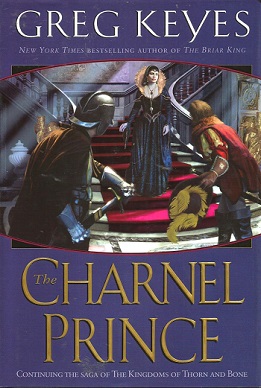January 9, 2013 -- 3:29 p.m.
(Two Reviews instead of Two Rivers. Geddit? This is the spoiler-free part.)
I camped out at the BYU book signing and got the #58th copy of Memory of Light. A large part of me felt insane for doing it--it was, after all, -2 degree whether, and by the end of the night, the inside my tent walls had so much ice on them that they looked like frosted glass--but the Wheel of Time has been my go-to comfort read for some 16 years now, and I wanted to end things in style.
Speaking of ending things with style...Wow. I finished the book this morning at 4 a.m. After 7 books of waiting (for me), I have an ending to the story I first started reading when I was 13 years old. And it was an awesome ending.
I don't know how Brandon Sanderson did it. There were so many threads to be juggled, so many characters, so many plot-points, and he managed to pull them together in a satisfying fashion. Before, I've said his style grated on me, but while I still noted the differences between him and Robert Jordan in this book--this was the first book where I really, truly didn't care. I could tell that the majority of it was his, but it didn't matter because things were so good. I'm glad Team Jordan put the extra time into it, because I think it shows in the book's quality.
If any of the last books bugged you, be they the pacing issues of Crossroads of Twilight or the painful rendition of Mat in Gathering Storm, I say--skip ahead. Just read this book. It's worth it, especially if you like battle scenes. Because this book is like 700-pages of non-stop battles. And since this book feels like it's going back to the roots of the series (appropriate for the wheel theme), you won't actually have missed too much.
And the stakes get high. People we've known and loved since the first book die. Characters make heroic sacrifices. There are callbacks to things earlier in the series that I'd pretty much forgotten.
****SPOILER-REVIEW****
(Seriously, spoilers. Don't read this until you're at the end of AMOL).
I liked the male/female working-together dynamic that was running through everywhere (Andol/Pevara, Elayne/her generals, Rand/NynaRaine). That was a cool pay-off of the series' philosophy. It was cool to see the flaws in Callandor be intentional. That was great.
At the same time, I was disappointed by how useless Moiraine and Nynaeve turned out to be. What did Moiraine do that was so important for saving the world? Alivia could have come in her place and nothing would have changed. Mat sacrificed his eye so that, what, Moiraine could tell Egwene she needed to break the seals when she got her hands on them? I guess coming to a truce between them was good, but I wasn't sure Moiraine was the only one capable of doing that. I had really hoped she'd get to do something awesomely dramatic. And she did, at the very end with exploiting the flaw, but that was Rand's idea, so she only gets partial credit with it.
Ditto with Nynaeve. Alanna could have released the stupid bond at any time. So Nynaeve actually knowing how to do stuff without the power (a theme repeatedly hashed on this whole time) didn't actually turn out to matter. It also brings up the question: Moiraine knew she was going to die, why didn't she release Lan and save him a little suicidal angst? Not good on you, girlfriend. I always assumed she didn't because it was some complicated weave that could only be done with time/effort. Nope!
And all the stuff we had to slog through with how many books with the Windfinders? Did it pay off? Nope. Not that I wanted to spend time with a culture that beats up its teachers. WTF was that???
Padan Fain was the biggest letdown. He's been screwing things up for our heroes ever since the first book and he barely gets a mention (except for two obvious 'help remind the reader that's he's still out there' moments by Perrin) until he's suddenly a mini-roaming Mashadar who gets two pages and then gets offed. Thanks for wasting our book space for however many years only to give Mat something to do at the bore for thirty seconds!
Speaking of Mat, how great was it that the Hornsounder didn't end up sounding the horn after all. Great thing or greatest thing? (TEAM OLVER 4EVAH!!!)
***END SPOILERS***
Overall, even though I was annoyed at some little things, I loved the ending. You can't have a book series go on for so long with so many things being juggled without there being a few disappointments, and I'm in awe that Brandon Sanderson managed to complete such a daunting task.
So bravo, team Jordan, bravo. A part of my life feels...empty, now. Good thing GRRM's still writing books for me to obsess about. If he finishes a Song of Ice and Fire, I won't know what to do with myself :)








